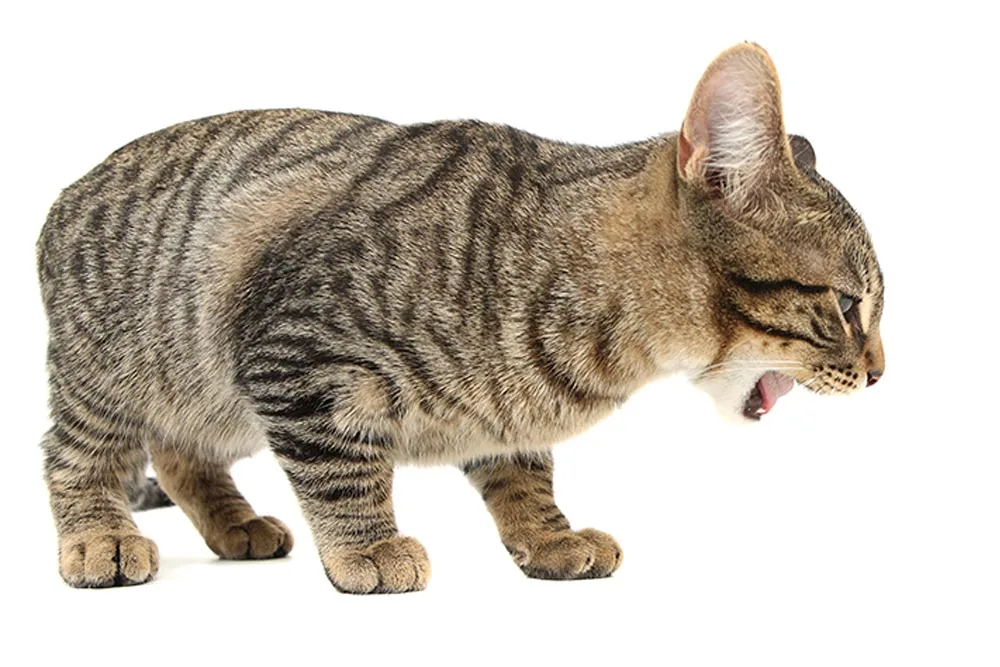When your cat coughs up a hairball, it can be a worrying sight. It’s a common part of cat ownership, but there’s a lot to learn about why they happen and what you can do to help your cat. This blog post is here to give you the lowdown on cat hairballs, covering why they occur, how they can affect your cat’s health, and what steps you can take to minimize their frequency. If you’re looking for more information or need to book an appointment to discuss your cat’s health, All Kinds Veterinary Hospital is here for you. You can reach us at (301) 994-9919 for any questions or to schedule a visit.

Understanding Cat Hairballs
Hairballs aren’t just unpleasant surprises; they’re a sign of what’s going on inside your cat. As cats groom themselves, they swallow hair, which can accumulate into a ball in their stomach. Most of the time, these hairballs pass through the digestive system without trouble. However, sometimes they can’t pass through normally and are vomited up instead.
The Grooming Process
Cats spend a considerable amount of time grooming themselves. Their tongues have tiny, hook-like features that catch loose and dead hair. Swallowing hair is a normal part of the grooming process, but it can lead to the formation of hairballs.
Signs and Symptoms
While it’s common for cats to cough up hairballs occasionally, frequent occurrences might signal an underlying issue. Signs that your cat might be struggling with hairballs include excessive grooming, hacking, gagging, vomiting, and even constipation or diarrhea. If you notice these symptoms, it’s a good idea to talk to a vet.
Preventing Hairballs in Cats
Reducing the formation of hairballs is key to keeping your cat comfortable and healthy. There are several steps you can take to help manage and prevent hairballs.
Regular Grooming
By brushing your cat regularly, you can remove much of the loose fur that would otherwise be ingested. This is especially important for long-haired breeds that are more prone to hairballs.
Dietary Solutions
There are specially formulated cat foods available that help improve coat health and reduce shedding. These foods often contain higher levels of fiber, which aids in the natural passage of hair through the digestive system.
Hydration is Key
Keeping your cat well-hydrated is essential. A good supply of fresh water helps keep the digestive system moving smoothly, reducing the risk of hairballs forming.
When to Contact a Vet
While hairballs are a normal part of cat ownership, they shouldn’t be a frequent problem. If you notice your cat is producing hairballs more often than seems normal, or if they show signs of distress, it’s important to get in touch with a professional.
Recognizing the Signs
Keep an eye out for persistent vomiting, lack of appetite, lethargy, or any changes in bathroom habits. These could be signs that a hairball has caused a blockage, which can be serious.
Professional Advice
At All Kinds Veterinary Hospital, our team is ready to offer advice and support for your cat’s needs. Whether it’s discussing dietary changes, grooming tips, or needing a check-up, we’re just a phone call away.
Hairballs might seem like just another part of life with a cat, but understanding and managing them is important for your cat’s health. Regular grooming, proper diet, and hydration can all make a big difference. And, of course, if you’re ever concerned about your cat’s health or just need some advice, All Kinds Veterinary Hospital is here to help. Give us a call at (301) 994-9919 to chat with our friendly team or to set up an appointment for your cat. Your cat’s health is our top priority, and we’re dedicated to providing the care and information you need to keep them happy and healthy.
